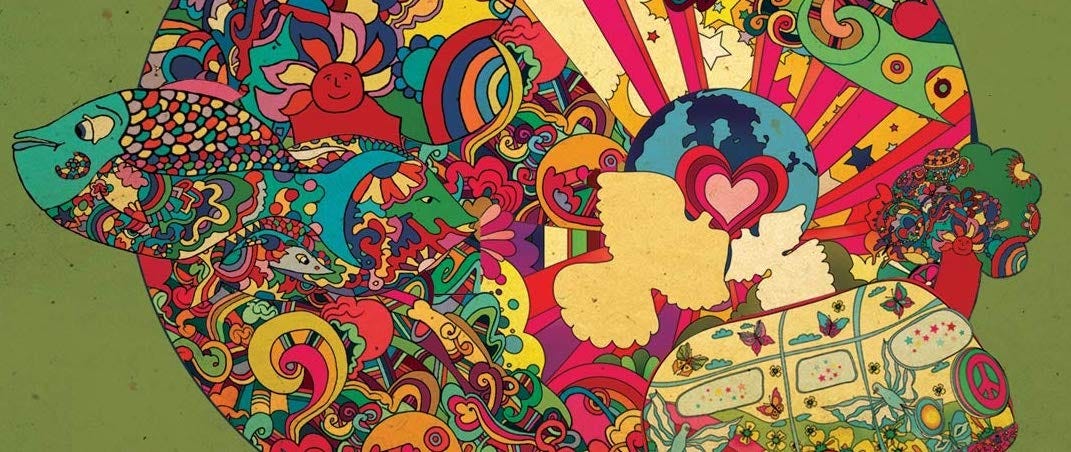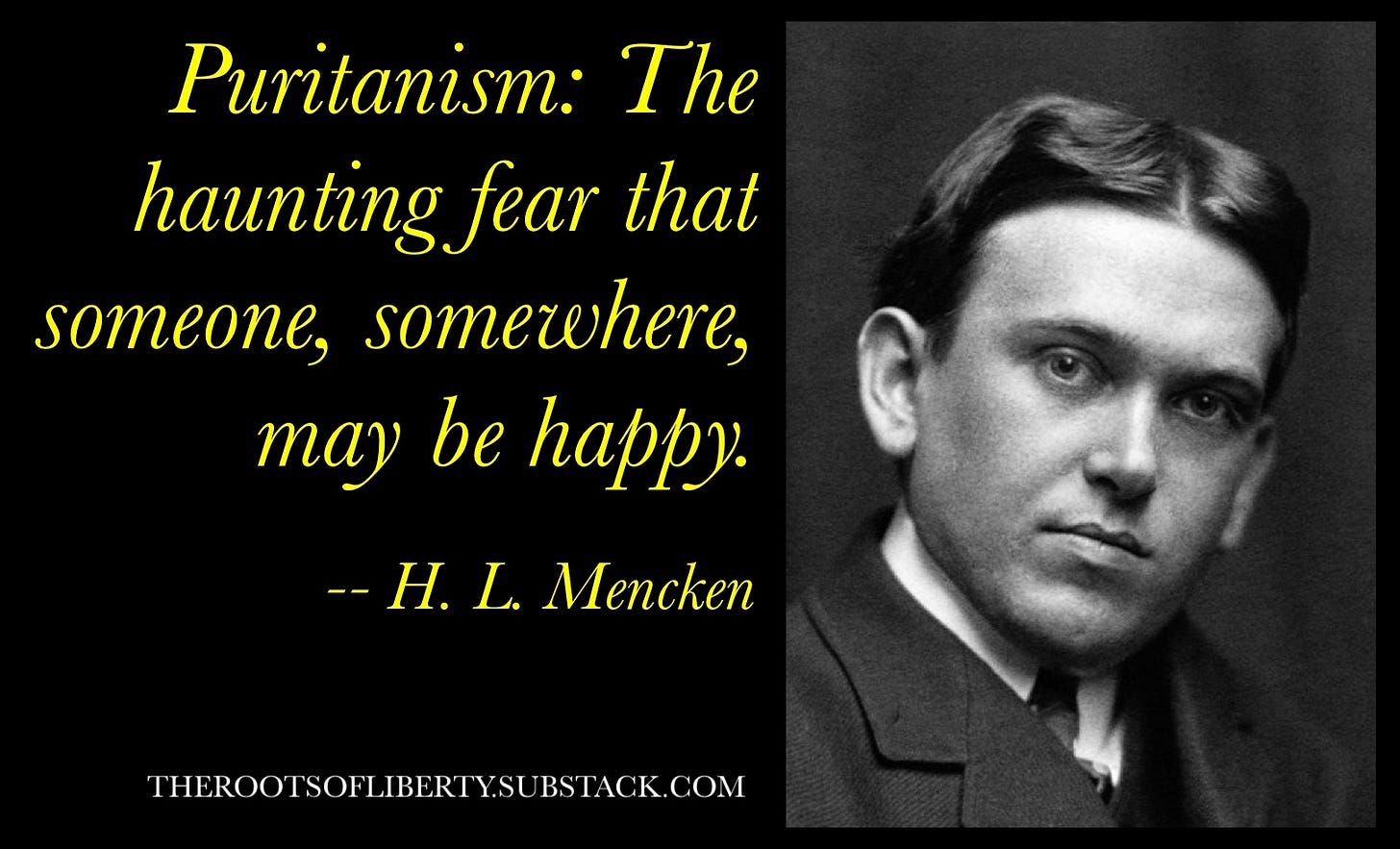Wall Street, in its 1980s period of excess (and beyond), was legendarily powered by cocaine, the "devil's dandruff" that made billionaires of such luminaries as Pablo Escobar and Joaquín "El Chapo" Guzmán, to name but two. Drug cartels employ half a million people in Mexico alone and generate tens of billions in annual revenue. That industry also powers its counterpart - the enforcement industry - to the tune of $100B a year in the US alone.
As I detailed in my short book, End The War On Drugs, serialized here at the blog, these industries thrive on the perpetuation of prohibition, despite its obvious and rampant failures.
Our governments are finally stepping back, in fits, starts, and myriad errors, from prohibition, with state-level legalizations of pot and pot products. That they're getting legalization wrong in too many ways to count is unfortunate but wholly expected. After all, they're generally not legalizing because liberty, nor are they legalizing in the sense of "this is an intoxicant, we will treat it as one." Mostly, it's about the Benjamins, about snatching a chunk of the revenue stream that's flowing ever more robustly despite their past prohibitive efforts. The Feds, perhaps more beholden to the industries that prohibition powers (enforcement, incarceration, litigation, and so on) than to either liberty or that cash flow, still have pot listed as a Schedule I Controlled Substance, meaning that it
The "no currently accepted medical use" bit is self-fulfilling, of course. They alone get to decide.
The Feds’ dismissal notwithstanding, it is widely confirmed that cannabinoids abate nausea, something that is of great benefit to the 25-50% of cancer chemotherapy patients who experience it, and those patients shouldn't have to rely on the subset of the medical community that has standing with the DEA to "accept" this medical use. I've known cancer patients ravaged by the nausea of chemo, and the notion that the government stands in the way of something that can help them offends me to my core, and no "greater good" argument will ever sway me in that regard.
The states are where things are going right (though there's still a long way to go). As of today, 38 states, DC, and three territories have legalized pot, either medicinally or recreationally, and several more have taken a baby step in allowing low-THC products for specific medical uses (e.g. Texas: "intractable epilepsy, incurable neurodegenerative disease, terminal cancer, multiple sclerosis, spasticity, ALS, autism"). Only four states (Idaho, Kansas, South Carolina and Wyoming) still have full prohibitions.
But, state-level legalization can only go so far. As long as the Feds maintain pot's Schedule I status, businesses must operate in a gray area, perpetually subject to the whims of DEA enforcement and the dampening effect of that Sword of Damocles, and the financial industry has similar problems. The momentum is there, but so is the resistance. We can speculate as to that resistance - I doubt that our oh-so-woke federal government is taking a socially conservative stance against the ganja - but it's there.
Which brings me to today's actual topic - psychedelics.
As WSJ reports, psychedelics are to Silicon Valley today what cocaine was to Wall Street in the '80s. Apart from the anecdotal benefits of "microdosing," there is growing interest in their medical use. While the big psychedelics (LSD, MDMA, peyote, psilocybin, mescaline, and DMT) are all Schedule I (see: no currently accepted medical use"), there is a growing body of research that they can treat PTSD, depression, anxiety, addiction, and offer other medical benefits. We already have a massive pharmaceutical industry dispensing pills for all these and more, with varying results, so the cause of medical progress behooves "science" to explore the use of psychedelics for such conditions. Maybe mushrooms trump Prozac, something that would make the execs at Eli Lilly rather unhappy (boo hoo).
Fortunately, the feds are pulling their heads out of their asses on this. The FDA, prompted by Congress, has generated first draft guidance on researching psychedelics for medical purposes. I'm sure, and the linked article notes, that this will be a bumpy road, because "government." Still, a bumpy road is better than a brick wall, and perhaps our lawmakers can catch up to what's already happening in Silicon Valley and elsewhere.
In writing this, I often wonder at the prohibitive reflex against recreational drugs that pervades many corners of America. Is it born of a latent puritanical streak in our culture? A rejection of "fun?" A belief that sobriety, austerity, asceticism, and self-deprivation are so virtuous as to be mandated by law? The temperance movement that led to Prohibition appears rooted in this "fun-policing" attitude, and the lesson appears unlearned.
Of course, any conversation about (currently) illegal drugs will bring around the specter of Fentanyl, which contributes mightily to the nearly 100K drug-related deaths in America each year. The short response there is found in the Iron Law of Prohibition, i.e. "as law enforcement becomes more intense, the potency of prohibited substances increases." Fentanyl is one hundred times as potent as morphine, which means that each kilo yields 100x more street-level doses. This greatly improves the efficiency of the supply chain, and no amount of added prohibition or enforcement spending will alter this reality. If anything, the problem can get worse: Carfentanil is 100x more potent than Fentanyl, it would offer the same logistical benefits over Fentanyl that Fentanyl offers over heroin.
That problem includes the overdose deaths, which we can attribute in no small part to the reliance of addicts on the back-alley "labs" that dilute, measure, and package the product. Addicts want their high, but they aren't looking to die, so overdoses usually boil down to someone's error. When something is as concentrated as Fentanyl, whoever “cuts” it needs to be that much more precise. Given how that world works, no one should be surprised at the sloppy outcome.
As usual, government efforts away from prohibition and enforcement are poorly conceived. The "look away" approach that has created large encampments of "zombies" isn't the solution, nor are "free needles" and other efforts where the drugs remain illegal. Nor is the attitude toward pot we're finding in some big cities (every time I venture into Manhattan, I note that everywhere I go reeks of skunk). As I blogged not that long ago, pot should be treated as an intoxicant, not celebrated as some sort of liberation. Hard drugs should be treated as a public health problem, with resources currently spent on enforcement repurposed to treatment, and not as a "here's your shooting gallery, we wash our hands of you." That last bit is how the progressives approached mental illness, turning people not of sound mind out onto the street rather than giving them care in mental health institutions.
Yes, there are liberty concerns in those remedies, but what we're doing now is worse in too many ways to count.
As for the psychedelics? No one's going to demand you partake, for one thing. For another, allowing is not condoning. I despise cigarettes, but I don't seek to prohibit you from smoking. It's that simple, really, and if there are benefits to psychedelic use - for both the healthy and the afflicted - I'd rather know than proclaim "no fun for you!"






As you stated, it's always all about the Benjamins.
Get the govt involved, and no matter the issue or angle, things will be worse.
For mj, I prefer the black market.
Any discussion of drugs, whether legal or not, need consider the abysmal abuse of alcohol.